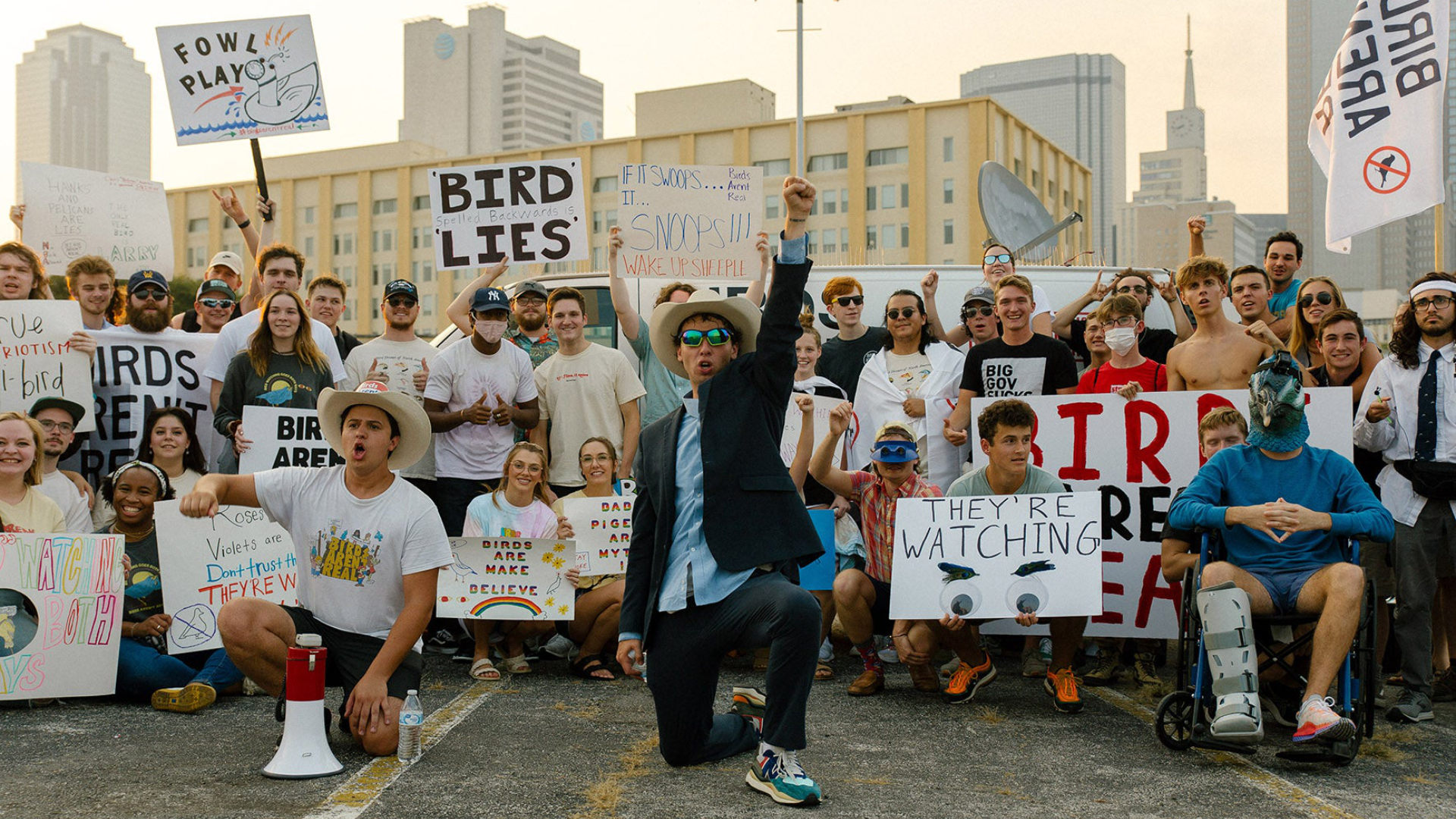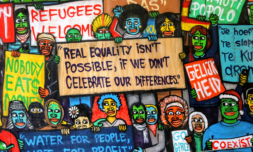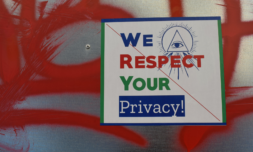The quest for something to believe in
Trends suggest that public trust in American news media is dwindling. In 2021, Forbes reported that over half of Americans feel that ‘journalists and reporters purposely try to mislead people by saying things they know are false or gross exaggerations.’
And although social media is the by far the least trusted source worldwide, 48 percent of Americans continue turning to platforms like Facebook and Twitter for news updates on a regular basis.
This distrust in official news conglomerates combined with habitual social media use creates the perfect cocktail for radical concepts and ideologies to take off, because when information – fake or not – is shared to us by friends we trust, we are more likely to believe it is true.
The Birds Aren’t Real movement is a tongue-in-cheek jab at internet-based allegiance QAnon, a right-wing conspiracy group that believes a small number of Democrat elites are controlling the entire world, amongst a myriad of other far-reaching theories.
Thanks to aggressive social media algorithms and digital echo-chambers, QAnon amassed a global cult-like following during the pandemic, when people had little else to do besides stare into various screens and doomscroll for hours on end.
Its followers are diverse, not well-distinguished by gender, race, education level, or socio-economic status. And though the group has lost members that realised they’d fallen into a very damaging rabbit hole, the group continues to gain new members every day.
A far cry from QAnon, Birds Aren’t Real isn’t striving to foster hostility towards the US government. Instead, it shines a light on the importance of media literacy and offers comic relief in an era of informational chaos.
As a Gen-Z member of the Birds Aren’t Real movement from Pittsburg said, ‘Most conspiracy theories are fueled by hate or distrust or one powerful leader, but this is about finding an outlet for our pain.’
View this post on Instagram
Birds Aren’t Real indicates a shift in political satire
Memes were around long before Gen-Z got their Flamin’ Hot Cheeto encrusted fingers on an iPad for the first time, but it didn’t take long before they began creating their own genre of memes.
Navigating the uncertainty and existential dread brought on watching celebrity narcissists become world leaders, witnessing numerous climate change related disasters, and emerging into adulthood during a global pandemic – memes became a way for young people to collectively express how they were feeling about the world around them.
In fact, Birds Aren’t Real first came to fruition right after Donald Trump was sworn in as president. The now 23-year-old founder, Peter McIndoe, had stumbled upon a Women’s Rights March that came face to face with a group of pro-Trump rallyists.
Dumbfounded by the stark differences in each opposing side’s message, McIndoe ripped a flyer off a telephone pole and randomly etched ‘Birds Aren’t Real’ on the back of it before holding it up for everyone to see.
This spontaneous decision encapsulated how political ideologies have become so polarised that honestly, anything goes. His humorous approach to the absurdity of the moment resonated with young protesters around him and from that moment, Birds Aren’t Real was born.
It obvious that Gen-Z is blurring the line between satire and reality – making light of situations where they’d otherwise feel powerless. Throughout the first year of the pandemic, 72 percent of surveyed Gen-Z’ers said that memes made them feel they were ‘capable of getting through [it].’
As such, the future of comedy will surely be meme-ified, as younger generations continue to ‘fight lunacy with lunacy’ – in the words of McIndoe. But while Gen-Z has become accustomed to this genre of humour, not everyone is going to understand the message style of Birds Aren’t Real.
Members of the group have protested outside Twitter’s headquarters in San Francisco, demanding that the company change its logo in line with their ‘beliefs’. Ironically, when mainstream media reported on one of these protests, they completely missed the joke by simply taking the preposterous statements of Birds Aren’t Real at face value – OK Boomers.
So, while the fight against news misinformation in the digital age might be exhausting, Gen-Z is finding a way to laugh in the face of it all – and shrugging it off when people don’t understand.
McIndoe said, ‘Yes, we have been intentionally spreading misinformation for the past four years, but it’s with a purpose. It’s about holding up a mirror to America in the internet age.’
He added, ‘If anyone believes birds aren’t real, we’re the last of their concerns, because then there’s probably no conspiracy they don’t believe.’





















